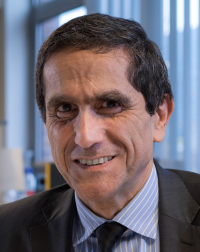 Philippe Amouyel, MD, PhD, is the Chair of the EU Joint Programme on Neurodegenerative Disease Research (JPND), a collaborative initiative involving 30 countries, including Canada and Australia, aimed at addressing the challenges of neurodegenerative diseases, particularly Alzheimer’s disease. JPND unites nations to tackle issues that transcend the capacity of any single country. A neurologist by training, Dr. Amouyel is a Professor of Epidemiology and Public Health at the University Hospital of Lille in France. He leads a prominent academic research unit specializing in the public health and molecular epidemiology of aging-related diseases. His work focuses on decoding the susceptibility to aging diseases through advanced molecular techniques such as high-throughput genomics, transcriptomics, proteomics, and bioinformatics. His research primarily explores the genetic determinants of neurodegenerative diseases, with a strong emphasis on Alzheimer’s disease. He has contributed to the discovery of over 90% of the published genetic susceptibility factors for Alzheimer’s disease (H-index: 123). From 2002 to 2011, Dr. Amouyel served as the Director of the Institut Pasteur de Lille. Since 2008, he has been the General Director of Fondation Alzheimer in France, a private non-profit foundation dedicated to supporting innovative and cutting-edge research on Alzheimer’s disease and related disorders.
Philippe Amouyel, MD, PhD, is the Chair of the EU Joint Programme on Neurodegenerative Disease Research (JPND), a collaborative initiative involving 30 countries, including Canada and Australia, aimed at addressing the challenges of neurodegenerative diseases, particularly Alzheimer’s disease. JPND unites nations to tackle issues that transcend the capacity of any single country. A neurologist by training, Dr. Amouyel is a Professor of Epidemiology and Public Health at the University Hospital of Lille in France. He leads a prominent academic research unit specializing in the public health and molecular epidemiology of aging-related diseases. His work focuses on decoding the susceptibility to aging diseases through advanced molecular techniques such as high-throughput genomics, transcriptomics, proteomics, and bioinformatics. His research primarily explores the genetic determinants of neurodegenerative diseases, with a strong emphasis on Alzheimer’s disease. He has contributed to the discovery of over 90% of the published genetic susceptibility factors for Alzheimer’s disease (H-index: 123). From 2002 to 2011, Dr. Amouyel served as the Director of the Institut Pasteur de Lille. Since 2008, he has been the General Director of Fondation Alzheimer in France, a private non-profit foundation dedicated to supporting innovative and cutting-edge research on Alzheimer’s disease and related disorders.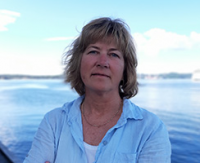 Day 1, 2024.12.09., 13:00-13:45 Panel discussion: Setting the scene: Towards a holistic approach of European Brain Health research
Day 1, 2024.12.09., 13:00-13:45 Panel discussion: Setting the scene: Towards a holistic approach of European Brain Health research
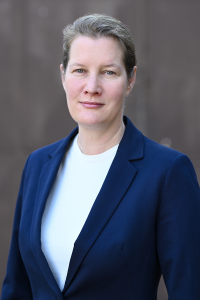 Day 2, 2024.12.14., 9:30-10:30 Pieces of the same puzzle - Good practices and recommendations for pan-European joint efforts from the European Brain Health research initiatives
Day 2, 2024.12.14., 9:30-10:30 Pieces of the same puzzle - Good practices and recommendations for pan-European joint efforts from the European Brain Health research initiatives
Day 2, 2024.12.14., 13:30-14:00 Plenary presentation: Introducing the Designing of a European Brain Health Landscape project
Dr. Ulrike Busshoff is Head of the International Health Research Department at the DLR Project Management Agency, Germany. She oversees national, European and international research funding programmes in the area of brain health and global health. Besides conceptualizing and executing research funding programs on behalf of the German Federal Ministry of Education and Research she is also responsible for overarching topics like patient and public involvement, quality assurance in biomedical research, and ethical issues.
Dr. Busshoff is the coordinator of the ERA-Net NEURON that comprises ministries and funding agencies from 27 countries in and beyond Europe. Members in this network collaborate along a common research agenda, and with support by the European Commission to jointly fund research, networking and training activities in the area of neurological and mental disorders. Since 2023, Dr. Busshoff is also the coordinator of the CSA BrainHealth. This network conceptualizes and prepares the European Partnership for Brain Health. This large-scale endeavour will support brain health research and innovation with the ultimate goal to preserve and promote brain health. She serves also as member of the Advisory Board EU-Africa PerMed, a CSA fostering joint projects in personalised medicine research between Europe and Africa. Dr. Busshoff holds a PhD in neurobiology from the University of Heidelberg.
 Day 1, 2024.12.09., 16:00-16:50 Parallel session 1: Discovery neuroscience research as a foundation for brain health
Day 1, 2024.12.09., 16:00-16:50 Parallel session 1: Discovery neuroscience research as a foundation for brain healthBalázs Hangya was trained as a medical doctor at Semmelweis University, Budapest and received his MD degree in 2006. In parallel he was also trained as a mathematician and received a master’s degree in Probability Theory and Statistics from Eotvos Lorand University, Budapest in 2007. He joined the laboratory of Tamas Freund at the Institute of Experimental Medicine, Budapest, where he worked on the neural mechanisms of hippocampal and neocortical oscillations. He received his PhD in Neuroscience in 2010 from the Janos Szentagothai Doctoral School. Hangya spent four and a half years in the United States as a postdoctoral researcher in the Kepecs lab at Cold Spring Harbor Laboratory where he studied the role of the basal forebrain cholinergic system in attention and learning. He started his independent laboratory in the Institute of Experimental Medicine, Budapest in 2015, investigating the neuromodulatory control of cognitive functions including learning and decision making.
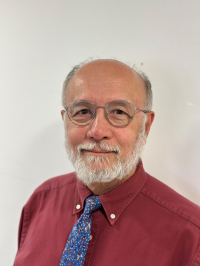 Day 1, 2024.12.09., 14:15-15:15 Panel session: Global Dialogue in Brain research
Day 1, 2024.12.09., 14:15-15:15 Panel session: Global Dialogue in Brain researchDavid Menon is Director of Research at the University of Cambridge, and an Emeritus Senior Investigator in the National Institute for Health and Care Research (NIHR). He is a Founding Fellow of the Academy of Medical Sciences (UK), and a Professorial Fellow in the Medical Sciences at Queens’ College, Cambridge. His achievements led to appointment as Commander of the Order of the British Empire (CBE) in June 2024. He was the first Director of the Neurosciences Critical Care Unit (NCCU) at Addenbrooke’s Hospital, Cambridge, where he established the first UK training programme for specialist neurocritical care. He jointly leads the EU-funded €30 million CENTER-TBI Consortium, the International Initiative on TBI Research, and the multi-funder UK national Traumatic Brain Injury (TBI) Research. He jointly led Lancet Neurology Commissions on TBI in 2017 and 2022, and was Executive Editor of the UK All Party Parliamentary Group Report on Acquired Brain Injury. He has been applicant or co-applicant on awarded grants totaling over $60 million. He has over 650 peer-reviewed publications, with a ‘h’ index of over 130 (Google Scholar) and has been continuously rated as a Highly Cited Researcher by Clarivate since 2021.
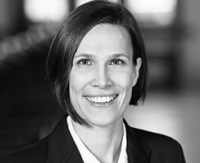 Day 1, 2024.12.09., 16:00-16:50 Parallel session 1: Discovery neuroscience research as a foundation for brain health
Day 1, 2024.12.09., 16:00-16:50 Parallel session 1: Discovery neuroscience research as a foundation for brain health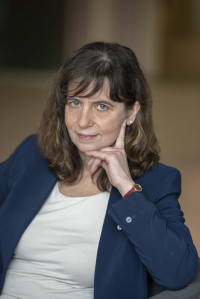 Day 2, 2024.12.14., 9:00-9:30 Recap and highlights of Day 1. Setting the scene for Day 2
Day 2, 2024.12.14., 9:00-9:30 Recap and highlights of Day 1. Setting the scene for Day 2Beata Sperlagh is the director, research professor and Head of Laboratory of Molecular Pharmacology of HUN-REN Institute of Experimental Medicine, Budapest, Hungary; honorary professor of Pharmacology, Semmelweis University, Budapest. She is the corresponding member of the Hungarian Academy of Sciences (HAS) and the Academia Europaea. She graduated as an MD at the Semmelweis University and obtained her PhD in 1994. She was a visiting scientist in the Center for Neurochemistry in Orangeburg, New York in 1991, 1992 and 1996. Her main scientific interest is neuroscience and pharmacology having major achievements by the discovery of the P2 purinergic receptors regulating neurotransmission and identification of P2X7 receptors as new drug target in psychiatric disorders. She has strong commitment to the translation of basic science findings to new therapies with established relationship with pharma companies.
She has 244 publications in international scientific journals receiving over 11000 citations. She is the Governance Chair of International Union of Basic and Clinical Pharmacology (IUPHAR) and the member of the Bioscience Steering Committee of the European Academies' Science Advisory Council (EASAC).
She is the past and present member of prestigious funding bodies including LS7 Panel of the European Research Council (ERC), and the Hungarian National Science Foundation.
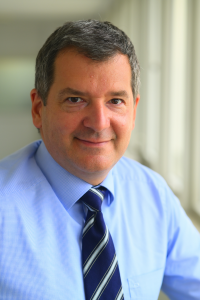 Thilo van Eimeren’s scientific curiosity lies in understanding the structural and molecular determinants of brain function in both health and disease. With the ultimate vison of preventing neurodegenerative disorders such as Parkinsonian Disorders and Alzheimer’s disease, my research aims to uncover pathogenic and therapeutic mechanisms in these conditions. To achieve this, he integrates molecular, structural and functional brain imaging techniques to provide deeper insights into disease progression and treatment effects. A significant focus is on the early detection of Parkinsonian Disorders utilizing biological and genetic markers associated with Parkinson’s disease to create precise diagnostic tools capable of detecting the condition at its earliest stages. Beyond research, he is deeply committed to translating these findings into clinical applications. This includes the development and implementation of advanced neuroimaging standards that enhance diagnostic accuracy and patient care. Collaboration is at the heart of his work. He coordinates international initiatives like the European Cluster for Imaging Biomarkers and the Neuroimaging Study Group of the International Parkinson and Movement Disorder Society. Through these efforts, he strives to bridge the gap between basic science and clinical practice, fostering innovation and improving outcomes for individuals affected by neurodegenerative diseases.
Thilo van Eimeren’s scientific curiosity lies in understanding the structural and molecular determinants of brain function in both health and disease. With the ultimate vison of preventing neurodegenerative disorders such as Parkinsonian Disorders and Alzheimer’s disease, my research aims to uncover pathogenic and therapeutic mechanisms in these conditions. To achieve this, he integrates molecular, structural and functional brain imaging techniques to provide deeper insights into disease progression and treatment effects. A significant focus is on the early detection of Parkinsonian Disorders utilizing biological and genetic markers associated with Parkinson’s disease to create precise diagnostic tools capable of detecting the condition at its earliest stages. Beyond research, he is deeply committed to translating these findings into clinical applications. This includes the development and implementation of advanced neuroimaging standards that enhance diagnostic accuracy and patient care. Collaboration is at the heart of his work. He coordinates international initiatives like the European Cluster for Imaging Biomarkers and the Neuroimaging Study Group of the International Parkinson and Movement Disorder Society. Through these efforts, he strives to bridge the gap between basic science and clinical practice, fostering innovation and improving outcomes for individuals affected by neurodegenerative diseases.





